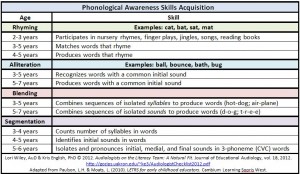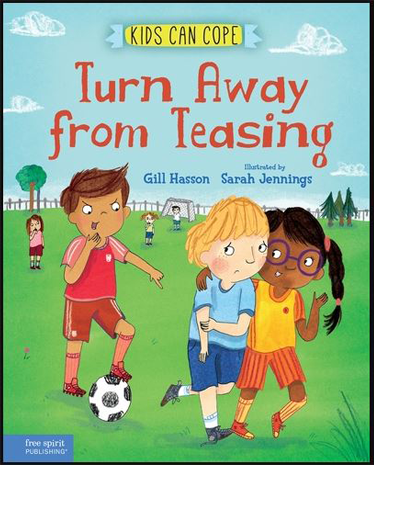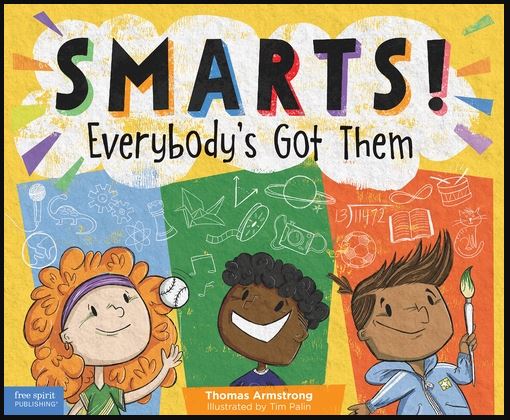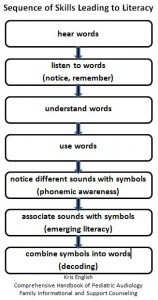Related Products
For Parents
Related Teacher Tools Takeout Items
Getting Ready to Read
 Hearing loss causes a smaller listening bubble and reduces the amount of incidental language learning that a child will hear. It is said that about 80% of vocabulary is learned from overhearing – or incidental learning. Factor in the reality that it takes about 20,000 hours of listening before a child’s brain is ready to learn reading. Together, these factors bring home the reality that children with hearing loss are often not ready to begin to learn to read at the same time as their age peers.
Hearing loss causes a smaller listening bubble and reduces the amount of incidental language learning that a child will hear. It is said that about 80% of vocabulary is learned from overhearing – or incidental learning. Factor in the reality that it takes about 20,000 hours of listening before a child’s brain is ready to learn reading. Together, these factors bring home the reality that children with hearing loss are often not ready to begin to learn to read at the same time as their age peers.
Hear to Read
The Connection Between Hearing and First-Grade Reading
 Click on image to view more clearly.
Click on image to view more clearly.
What Are First-Grade Reading Skills?
Reading skills are defined for each grade by the Department of Education.
Examples of first-grade reading skills include:
- Knowing the difference between letters, words, and sentences
- Figuring out what a word is by sounding out the letters (decoding)
- Blending two to four sounds into a word
- Changing the sound in a word to make a new or rhyming word
Note: All these skills rely on careful listening.
Can Hearing Loss Affect These Reading Skills?
YES! There is a direct connection between listening to speech and learning to read.
The first skill in reading is learning to apply a sound (i.e., the B in Book) to a particular letter. This skill is called sound-letter association.
Why Start Now?
A child needs consistent auditory input for 5–6 years before the brain is ready to make the connection between letters of the alphabet and the sound associated with them.
When children do not have that consistent input for 5–6 years, they are less ready to read and learn with their peers.
Six Things Parents Can Do to Promote Reading Readiness
- Help your child hear speech all day with consistent amplification (hearing aids, implants, and FM systems).
- Help your child develop “text awareness” by pointing to words as well as pictures as you read books to your child.
- Talk about sounds in words. Change a letter in a word to create a word that rhymes.
- List words that start with the same sound as your child’s name (phonemic awareness).
- Talk about synonyms and antonyms.
- Help your child hear speech all day with consistent amplification.
For More Information About Reading Standards in Your State
www.education.com “Your State Standards and Testing”




